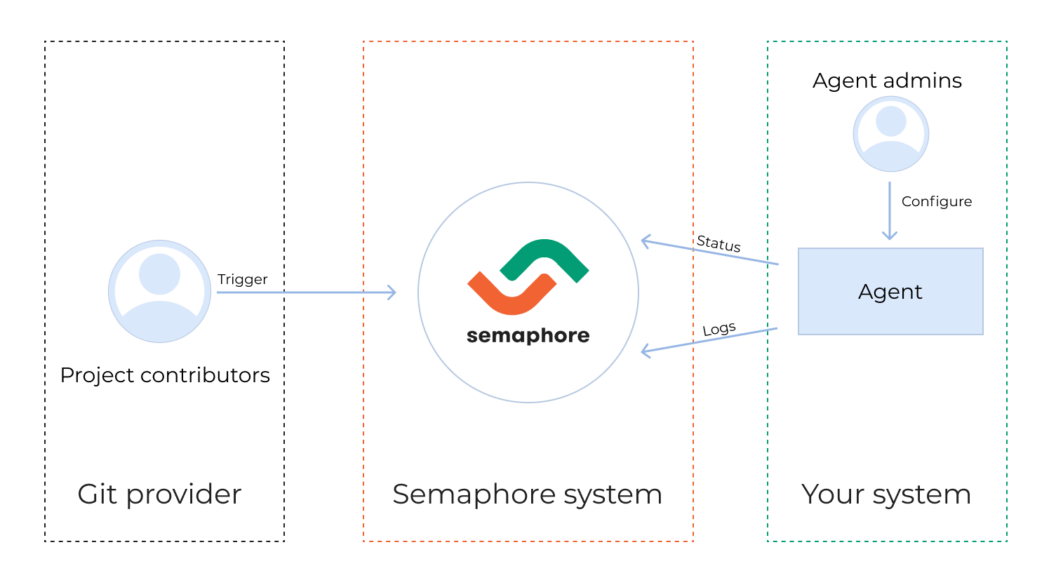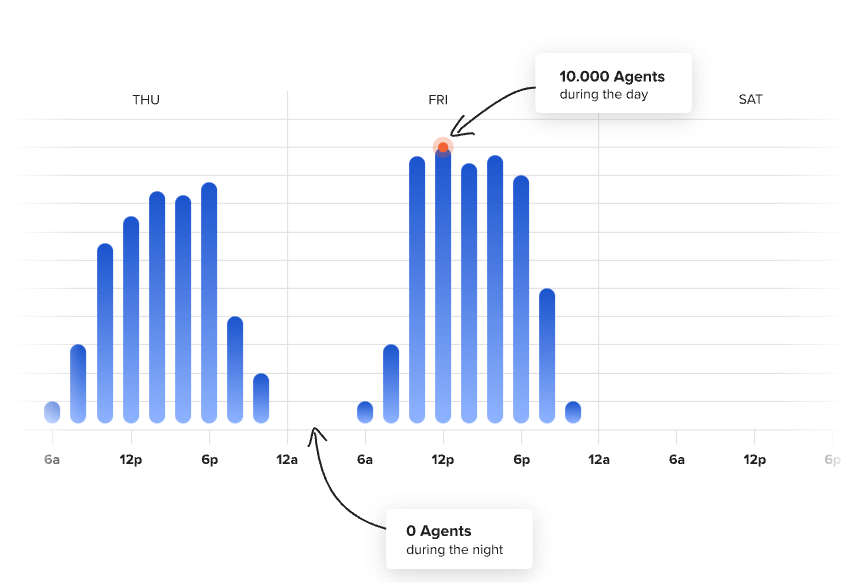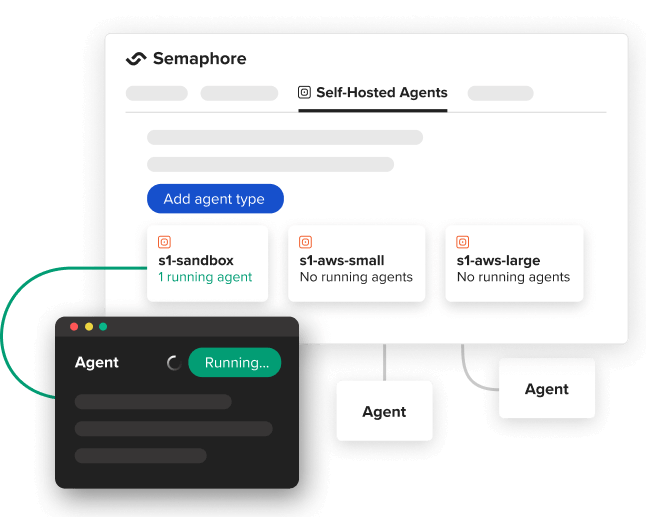Do you want to build your own CI/CD platform behind the security of your company firewall while still enjoying the simplicity of Semaphore?
Meet self-hosted agents. Now, you can host your own agents and customize the environment when you run your jobs. With self-hosted agents, you have full control over hardware, operating system, and software tools that your pipelines run on.
Here’s how self-hosted agents complement the existing Semaphore environment:

How do self-hosted agents work?
When creating your agent type, you get a registration token. There are three types of tokens available:
- Agent type registration token to start up the agent
- Agent access token to coordinate the agent state with Semaphore
- Job logs stream token to send logs back to Semaphore
Check out the docs to learn more about how to set up self-hosted agents.
Depending on the environment where you set your self-hosted agents, you can then create custom configurations when you run your jobs.
For instance, AWS allows you to scale up when running larger jobs and scale down during less busy periods of the day. You can configure the minimum and the maximum number of agents to run a job.
This way, the system can adapt dynamically to your needs. Read more about the Agent AWS stack.

How to begin with Semaphore’s agents, step by step
Step 1. Your team installs the agents on your machines. Semaphore supports all platforms, including Linux, macOS, AWS, Google Cloud, Kubernetes, and Windows (coming soon).
Step 2. The agent attempts to register with the Semaphore API.
Step 3. Status and output are reported back to Semaphore and displayed in the Semaphore UI. Your team has a full overview of the pipeline.
Why choose self-hosted agents?
Semaphore’s agents help you to get full control over your CI/CD. Here are some of the main reasons why you’d want to choose Semaphore’s self-hosted agents for your organization:
- Operation halting. You have full control over operations. In case your team notices anything suspicious, Semaphore has a master switch that halts all operations, instantly and completely.
- Encrypted by default. All communications are fully encrypted, so that your team can benefit from the enterprise-level security that Semaphore provides.
- Open source. Semaphore’s Self-Hosted Agents are built in the open. Your team can review and approve every decision
- Only necessary access. Semaphore follows the principle of least privilege. Every token that is used for communication is restricted to the minimal sets of actions it needs to do its job.
- Unidirectional communication. Communication always goes from agents to Semaphore, and never the other way around.
How Semaphore’s agents can help your team
With Semaphore’s agents, you can run your jobs in an environment that is controlled by your team.
Self-hosted agents allow your team to have full control over hardware, operating system versions, and the available software. You can run the agents anywhere you want: physical or virtual machines, containers, or in the cloud.
With the help of agents, you can speed up your CI/CD dramatically, removing all disk limitations and caching what’s necessary.

Sign up for a private beta
Self-hosted agents are currently in private beta. If you’d like to run Semaphore agents on your infrastructure, join the waitlist.
Here you can check out the Semaphore agent AWS stack.
Check out the docs to learn more about setting up Semaphore self-hosted agents.